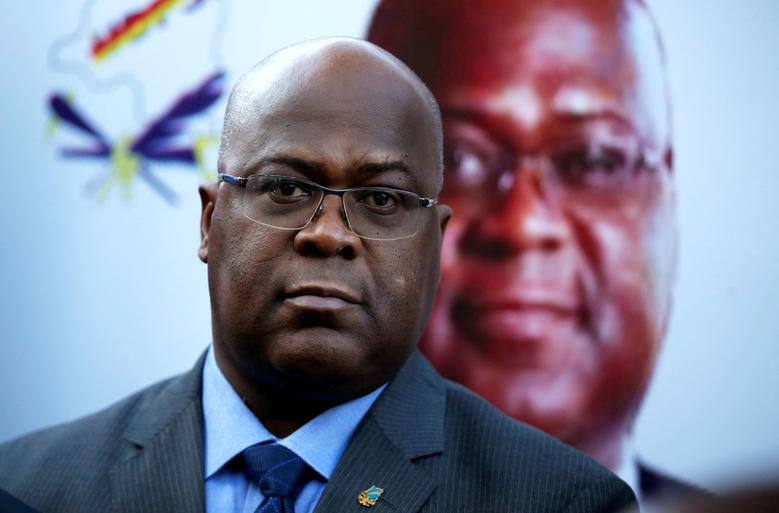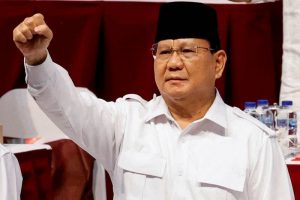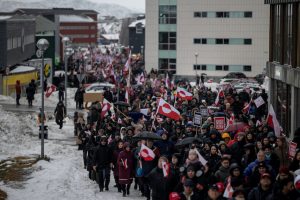(AF) President Tshisekedi of the Democratic Republic of the Congo has threatened to tear up cobalt mining contracts signed by the previous government led by Joseph Kabila. Cobalt is a key component in electric vehicles, laptops and other modern technologies, so the move looks likely to have an impact on major investments by China in the country.
The Congo or DRC has close to half of the world’s known reserves of cobalt – about 3.6 million tons of the 7.1 million estimated last year, according to Statista, and China has allegedly pumped more than US$10 billion into mining facilities and relationships in the country since 2012.
All Africa News quoted remarks by President Tshisekedi on a visit to the mining district of Katanga recently, when he announced his intention to renegotiate mining contracts, particularly those signed with China by his predecessor Kabila.
He promised to revise mining deals in the name of Congolese people who “still languish in misery”.
“It is not normal that those with whom the country has signed exploitation contracts get rich while our people remain poor,” Tshisekedi said on Thursday during a visit to the mining town of Kolwezi.
“It was time for the country to readjust its contracts with the miners to seal win-win partnerships,” he said at a rally in the town centre, cheered by thousands of residents.
“I’ve really had enough! (…) I’m very harsh on these investors who come to enrich themselves alone. They come with empty pockets and leave as billionaires,” the head of state was quoted saying.
But he noted that: “It is also our fault. Some of our compatriots had badly negotiated the mining contracts. Worse, the little that goes to the state, they put in their own pockets.”
He vowed to make “the great Katanga, the whole Congo (…) the world capital of strategic minerals”.
China’s state media made no mention of these comments.
But they said recently that President Tshisekedi visited the Huagang Mining Copper and Cobalt Mine Project, which was built by the company’s first hydropower bureau. Congo (DRC) Prime Minister Lukund and senior officials from the Lualaba Provincial Government accompanied him.
At the Huagang copper-cobalt mine, Tshisekedi listened to a speech about the production process and spoke with staff at the project. He affirmed the advanced equipment and technology used in the mine and hoped it would promote healthy development of the project, drive the local economy, and achieve win-win cooperation between the two countries.
Chinese media reported Tshisekedi as saying that the DRC attaches great importance to the cooperation with China. As a partner of the Belt and Road scheme and the rotating chairmanship of the African Union, the Congo would build a platform for cooperation between the two countries to deepen resources and infrastructure.
Cooperation with China was an opportunity to boost development of the Congo (DRC), and promote Congo-China relations to a new level, he reportedly said.
NOTORIOUS MINE DEAL
Officials later helped explain why the president made seemingly contradictory statements that were published within a few days of each other. One Congolese diplomat said, on condition of anonymity, there is a sometimes a clash of cultures because China brings in all its own workers and tends to ride roughshod over local officials.
The Katanga region saw a huge influx of miners and investors during a boom in the 2000s as Gecamine deposits were sold off, but the benefits failed to make a significant impact on the 90 million Congolese and their country is still one of the poorest in the world.
About 30 of the 40 mining companies in the region are Chinese or backed by Chinese capital. The former president was seen as an ally of Beijing, but the new president, who was elected in late 2018, broke away from the coalition he formed with Kabila and has allegedly moved closer to the US.
Kabila, who held power from 2001 to 2019, negotiated a highly contentious agreement with the Chinese in 2008 – copper and cobalt in exchange for infrastructure for $9 billion. But the deal was reduced to two thirds of that amount under pressure from the International Monetary Fund, which noted the severe impact it had on the country’s finances.
The Huagang copper and cobalt mine was one of the biggest deals during Kabila’s time in office. It involved Gecamines, a state-owned Congolese commodity trader and mining firm, forming a joint venture named Sicomines with a group of Chinese firms led by Sinohydro and China Railway Engineering.
China Eximbank awarded Sicomines credit of $6.2 billion to develop the mine and build public infrastructure. This was a resource-backed loan, under which the DRC agreed to pay back the funding China put in with copper and cobalt generated from the project.
But these sort of deals have been strongly criticised like Global Witness and other NGOs for their lack of transparency. There have also been claims that Congolese politicians got more than the public.
The IMF noted last year that the DRC said its liabilities from the Sicomines project accounted for 40% of the country’s external debts.
To date, about $2.74 billion has been disbursed by the Chinese so far, according to ‘Le Potentiel’ daily newspaper, which said President Tshisekedi’s comments were aimed at Beijing. But it quoted a source saying there was “no anti-Chinese plan” or desire for “a showdown with our partners”.
However, it seems clear that the world’s two great powers have both taken a keen interest in the huge African nation once again.
The Huagang mine is believed to be China’s largest non-energy investment in Africa. A total of $6.7 billion is said to have been earmarked for an operation that began in 2015 and is still expanding. The mine – seven kilometres southwest of Kolwezi City in Lualaba province, and covering some 11.5 square kilometers – is regarded as a large ‘world-class’ project.
It services China’s enormous appetite for copper and cobalt. The Chinese import 95,000 tonnes of cobalt a year, the South China Morning Post said recently. Other firms operating in the DRC include China Molybdenum, Wanbao, CNMC, Huayou Cobalt and Chengtun Mining.
The US ambassador the DRC is said to have welcomed Tshisekedi’s remarks, but the Chinese ambassador was cooler in his response, insisting that Beijing was ready to strengthen their “strategic partnership based on win-win cooperation”.
Indeed, Tshisekedi reportedly spoke to Xi Jinping on May 7, which shows how anxious China to remain a dominant player in the Congo’s mining sector.
Analysts say it is hardly surprising that countries such as the DRC are seeking a better deal at this point, when prices of copper and cobalt are surging to record highs, and given the importance of these commodities to China’s industrial ambitions.
Tshisekedi and his ministers will have talks with all miners in coming months, Africa News says.
























